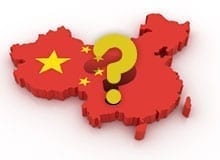
5/21/2015
As the Trans-Pacific Partnership (TPP) “fast track” debate continues its push through the congressional gauntlet, my fellow colleague Jay and I have analyzed hundreds of texts and perspectives surrounding the trade deal. We have covered labor, patent and trademarks, mass-torts, environmental concerns, and the highly controversial Investor State Dispute Resolution (ISDS) system, and little seems to be an improvement over existing agreements. If anything, TPP raises serious concerns regarding the influence of corporate interests over sovereign territory and questions regarding internet freedom. However, one point of agreement that I have with President Obama, is his assertion that it gives America the chance to re-write the rules of trade in the region before China does (China is not a TPP member). The purpose of the deal, although implicit, appears to be an attempt to lessen China’s economic, and in some respects political, concessions that the country gained as enticements to join the World Trade Organization (WTO) in 2001. China’s exclusion, however, is somewhat surprising in an era in which the United States and China appear to be forming deeper economic and political relations. Despite framing the TPP debate around China’s emergence, several key questions have been largely ignored; how does China feel about TPP and why is the world’s largest economy not a TPP member?
The official U.S. line regarding China is that its government and economy are not open enough to qualify for TPP’s supposedly-improved global trade standards. The country, however, has been kept informed about the progress of the deal through bilateral discussions with the U.S. throughout the years of negotiations. Given the secrecy of most of the provisions in TPP, it is difficult to say which aspects of the agreement affect China’s lack of eligibility; however experts have found that China would have much work to do regarding TPP’s leaked labor and environmental provisions. In the initial stages of the TPP negotiations, China considered raising its national standards to qualify for the agreement. In 2012, Li Xiangyang, dean of the Global Strategy Institute at the Chinese Academy of Social Sciences called TPP “the gravest challenge China faces,” and the Chinese Ministry of Commerce, along with several universities and think-tanks, began studying the pros and cons of joining the agreement in 2013.
One major concern is that since its acceptance into the World Trade Organization (WTO), China has been able to enjoy high tariffs and import restrictions; however TPP would force China to lower these barriers to trade. Fudan University in Shanghai professor, Shen Guobing, says “This is obviously an American trap for China,” calling it “a threshold we can’t possibly reach.” Regardless of losing a potential major economic advantage, China began a series of investigations in late 2014 into the feasibility of improving the country’s standards to meet TPP requirements and the consensus from several researchers was that China could afford to accommodate the agreement through various fiscal expenditures and changes in policy whether or not the country actually joined TPP. Additionally, Chinese President Xi Jinping’s focus on “deepening market reform,” and the historic 2014 climate accords with the U.S. have all indicated China’s willingness to move the country closer to international norms.
Since the TPP fast track’s push through congress began earlier this year, however, China has taken to a mixed posture on the agreement. Foreign Policy’s Min Ye observes, “China has already moved on. And the anti-China rhetoric the United States has deployed has ultimately done more harm than good.” Ye notes negotiations on several regional agreements that China has undergone since the TPP negotiations began, such as the “Silk Road” trade pact and the Asia Infrastructure Investment Bank (AIIB), among others. Chinese scholar and Silk Road advocate, Li Xiangyang speaks for many Chinese in believing that the Silk Road agreement is “diverse and open,” while, “TPP uses high-standards to exclude nations,” calling it “too political.” Said a former ministry official and China-United States-European Study Center in Beijing co-founder, He Weiwen, “We are more or less neutral because we have our own agenda.” These are not the only opinions on the issue though, as like within the U.S., China has had much internal debate on the agreement. The former trade minister, who led China’s push to join the WTO, Long Yongtu, said “TPP has to include China sooner or later,” saying that the agreement would “help China’s badly-needed reform in the state sector, labor, and environmental areas.” It remains to be seen, however, if the anti-China rhetoric included in the U.S.’s push to pass the deal will be enough to spurn China from any aspirations to join TPP. Moreover, if China does create some degree of regional hegemony on its own, would it lead to escalated economic and political tensions between the competing factions?
Sources:
Financial Times – Gideon Rachman
Foreign Policy (Blog) – Min Ye
New York Times – Keith Bradsher


Join the conversation!